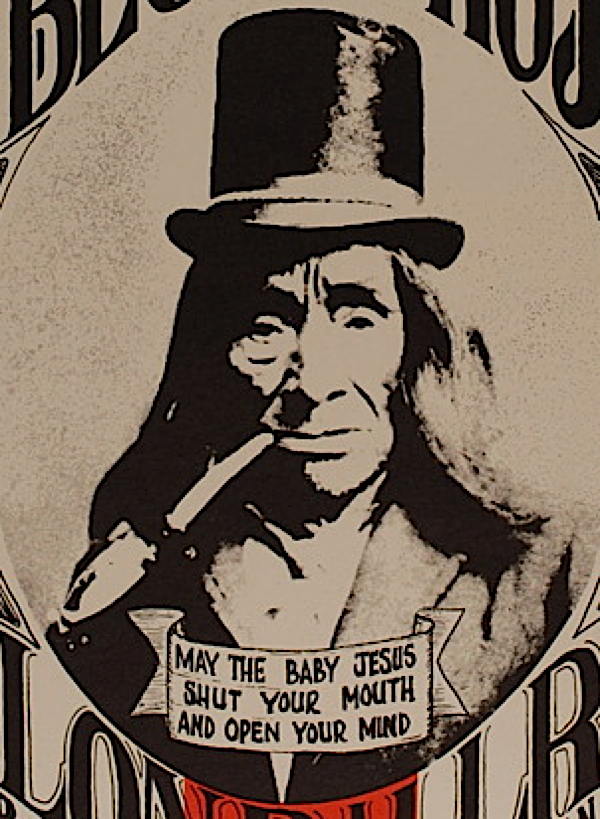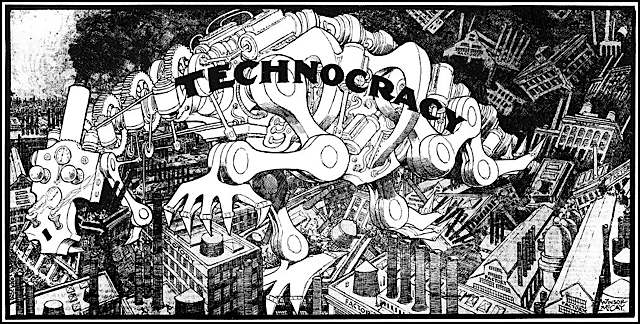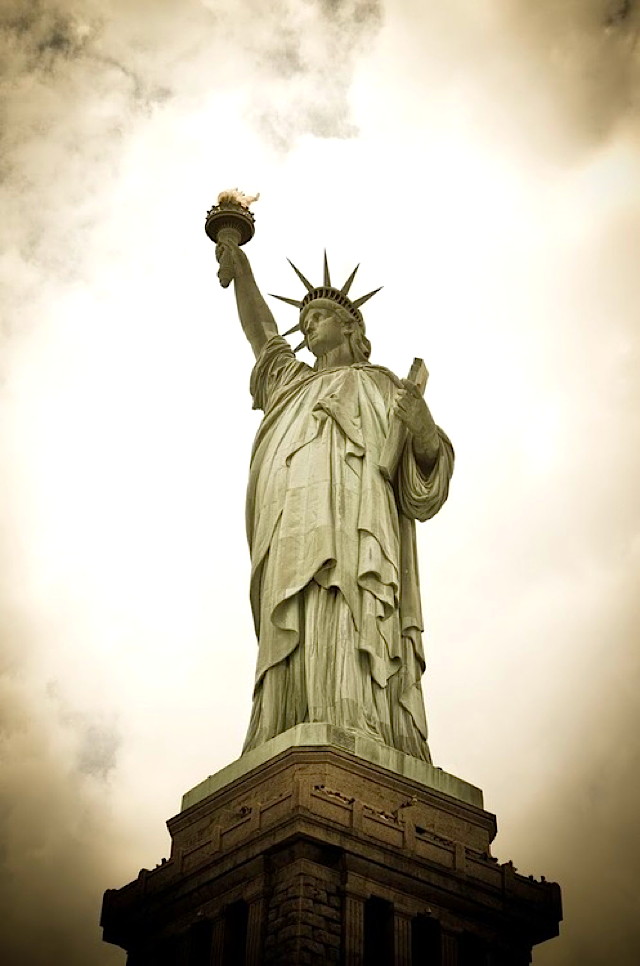 [ Hale Adams comments to ghostsniper in The Declaration Is Final ]
[ Hale Adams comments to ghostsniper in The Declaration Is Final ]
Hale Adams July 4, 2020, 2:32 PM
Ghost,
I would agree that democracy has its flaws — it’s been described by some (for instance, Jerry Pournelle, the noted science-fiction writer) as “two wolves and a sheep voting on what to have for lunch”. I think Winston Churchill described it as “the worst possible form of government, except for all the others”. At worst, it can be something akin to mob rule, which is why the Framers put various anti-majoritarian features in the federal Constitution, some of which have been undone by Progressives over the last century or so — see, for instance, the Seventeenth Amendment.
As for your fuming about Lincoln being a tyrant, and it being a bad thing that the South lost the war, I’m not unsympathetic — I think it was Gale Norton, George W. Bush’s Secretary of the Interior, who noted that “the States lost too much after 1865”, and she was right — the tendency since then has been to regard the states as mere departments of the central government, on the French model.
BUT ….
(You knew that was coming, didn’t you? *wry smile*)
…. I think your moaning about Northern tyranny and Southern virtue puts you on a par with Faulkner’s 14-year-old boy (see Gerard’s post a page or two back) — not wrong, necessarily, but not right, either.
The science-fiction writer, Harry Turtledove, has written a long (9 or 10 volume) series imagining a world in which the South won the Civil War at Antietam — he imagines that a Confederate courier did NOT lose a message, which then did NOT fall into the hands of the Northern generals, who then did NOT have a clue what the South was up to, which in turn resulted in the Northern army having its collective backside handed to it. With the North utterly defeated at Antietam, the South was able to bring the North to the peace table and win its independence.
“Rapture!!” cries Faulkner’s 14-year-old boy.
Not so fast.
In Turtledove’s alternate universe, the South allies itself with Second Empire France, Great Britain, and Imperial Russia, while the North falls under the spell of Imperial Germany. North America becomes an unquiet place, with Civil War II being fought in the 1880s (and the North gets spanked again, driving it farther into the arms of the Kaiser). World War I, with all its horrors of trench warfare, is visited on North America. The war ends in 1917, and the North is victorious with German help over the South, forcing harsh peace terms on it, and France, Britain, and Russia are likewise treated harshly by a victorious Germany.
The 1920s and ’30s see a slide all over the world toward authoritarism, and there is no UNIFIED United States present to counteract that slide. The USA and and CSA glower at each other along a fortified, 2,500-mile long border, and the South is just itching for revenge. The North has its hands full pacifying and absorbing Canada, and the South lapses into something like Nazi Germany, only with blacks becoming the object of race-hatred instead of the Jews.
And it gets worse from there …..
Yes, Turtledove may have an ideological ax to grind — given his background, he may well favor a strong central government with 20th-Century “liberal” ideals — but the man has a point. A world without the United States as it was after 1865 (however flawed the US was afterwards) would have been a scary place — there would have been no countervailing force working against the various European empires, and Imperial Germany under Kaiser Wilhelm II was (I think) rotten at its core. It may have been more benign had Frederick III not died in 1888 after just 99 days on the throne, but Bismarck built the Imperial constitution in such a way that capture of the Imperial government by military interests was inevitable.
As an aside, Japan’s Meiji Constitution of 1890 had the same flaw — the military was NOT subject to the civilian government. The military did not answer to the prime minister, but to the Emperor, allowing it to do an “end run” around the civilian leadership. Worse, the Imperial Rescript of 1905 dictated that the Minister of the Navy and the Minister of War had to be serving officers. The civilians might offer the posts to an officer, but if the Army or Navy said “no”, the officer couldn’t serve (obviously). So, the government would collapse because a Cabinet could not be formed. This veto-power over the very formation of a government explains the slide of Japan into a de facto military dictatorship after 1930.
Imperial Germany had the same problem. World War I didn’t end in part because the German military wouldn’t let it end — they had the ear of Wilhelm II as “supreme warlord”, and he was too dysfunctional to tell the Army where to go.
But I digress …..
Ghost, is the country we now have ideal? No, of course not. Is the best we could hope for, given the facts of 1865? Probably. I’m sure you’re enough of an engineer to appreciate the saying, “The best is the enemy of the good enough”.
It seems to me that the country our great-great-grandparents gave us is “good enough”.
My two cents’ worth (sorry about the length of the comment),
Hale Adams
Pikesville, People’s still-mostly-Democratic Republic of Maryland


![That Was the Whopper Weekend That Was [Illustrated] welcometohell](https://americandigest.org/wp/wp-content/uploads/2021/05/welcometohell-150x150.jpg)
![Allen Ginsberg: The Interview, <strong> ➡ 1972 ⬅ </strong> [Republished by unpopular demand] ginsbergnirvana](https://americandigest.org/wp/wp-content/uploads/2022/05/ginsbergnirvana-150x150.jpg)




 Gerard Van der Leun
Gerard Van der Leun
























Comments on this entry are closed.
Wow. Thanks for the front-page treatment, Gerard!
**shuffles feet, caught between gratitude and embarrassment at the sudden prominence**
Hale
One assumes that the country of Hale’s great-great-grandparents was after Lincoln and before the progressive explosion between 1906 and 1920, including but not limited to the Federal Reserve Act, the income tax, and women’s suffrage, in which those g-g-grandparents either played a part of failed to affect. All were necessary pre-conditions for the exponential multiplication–eightfold–of the federal government in 1933.
Remove entirely the old South from the equation, and see that Lincolns war changed the North. The old Republic was dead. No serious case can be made for going back to 1880 through the political process or by other means that I know of.
Churchill was wrong.
Tocqueville wrote the book on how to derail the democratic wagon, and we loosened every lug nut on those wheels. Even Jimmy Madison made mention of it. We are not going back. If you didn’t get the memo in 1933 and 2008, we are going Forward, have been for 155 years.
No Union victory and likely the rump US doesn’t feel froggy enough to intervene in Europe in any way. Lord knows my grandfather would very likely not have rushed off to repay the Comtes de Grasse and Rochambeau for bagging up the Redcoats chased their way by his great grandfather, and thus avoided a life diminished and cut short by his gas-seared lungs.
No surge of fresh doughboys for the exhausted Allies, no sealed train to the Finland Station, and no Versailles, with its poisonous legacy of revanchism. Lenin and that funny Austrian corporal with the toothbrush moustache are then utterly inconsequential figures, of which nothing further is heard.
No Reconstruction, with its even more bitter resentments, so with mechanization slavery is ended peaceably and gradually several years ahead of Brazil, with reasonable compensation as per the Brit model. Some of the emancipated would seek repatriation, sweetened by financial incentives, but not most, Those left would have to, in the words of that politician from the state where a free black could not so much as set foot without posting a substantial bond, “Root, hog, or die!”, and relations between the races would look rather more like that of the English Caribbean or Brazil than that which currently prevails.
Speculative and fantastic you say? An order of magnitude less so than the assumptions upon which our current history arrived, I say.
Which 20th century would you prefer?
In 1940s Seattle, when a service member would sup or drink in any waterfront establishment, he’d sit with his back to his buddy’s, and against the wall. Should a fight break out, it was no time to establish whether your mate was politically plumb; it was time to fight.
Get the shit out of your ears, gentle friends. You can be recidivous (a favorite word that has it’s place here) all you’d like; were the Plains Indian Wars to your satisfaction? How about the Pig War, complete with our favorite Confederate general, Pickett? All good with the Mexican American War?
No thanks. This is the America I inhabit. The one handed me by my fathers. They and I have less history in the USA than the few descendants of slavery who came here in the antebellum era. My family only goes back to 1900 as german immigrants. Many black men have more date-of-rank than I and claim to the American legacy.
idc if the Civil War was fought by ass-raping Union hordes, or if the Indian Wars were brutality against a race of all-ages. You can say any chicken-shit thing you’d like, but I am standing on the founding documents, and will not budge.
Now I see the Black Panthers coming up from manholes and taking to the streets. Still pissing about Cemetery Ridge?
Past performance is no guarantee of future results. Things happen for better or worst when you change even one little thing in the past; hence Star Trek’s “Temporal Prime Directive.”
Bottom line; Is is, live with it, & is is built on was, not if we had just. Yet we can still learn from if we had, to decide what we will, next. Meanwhile is is.